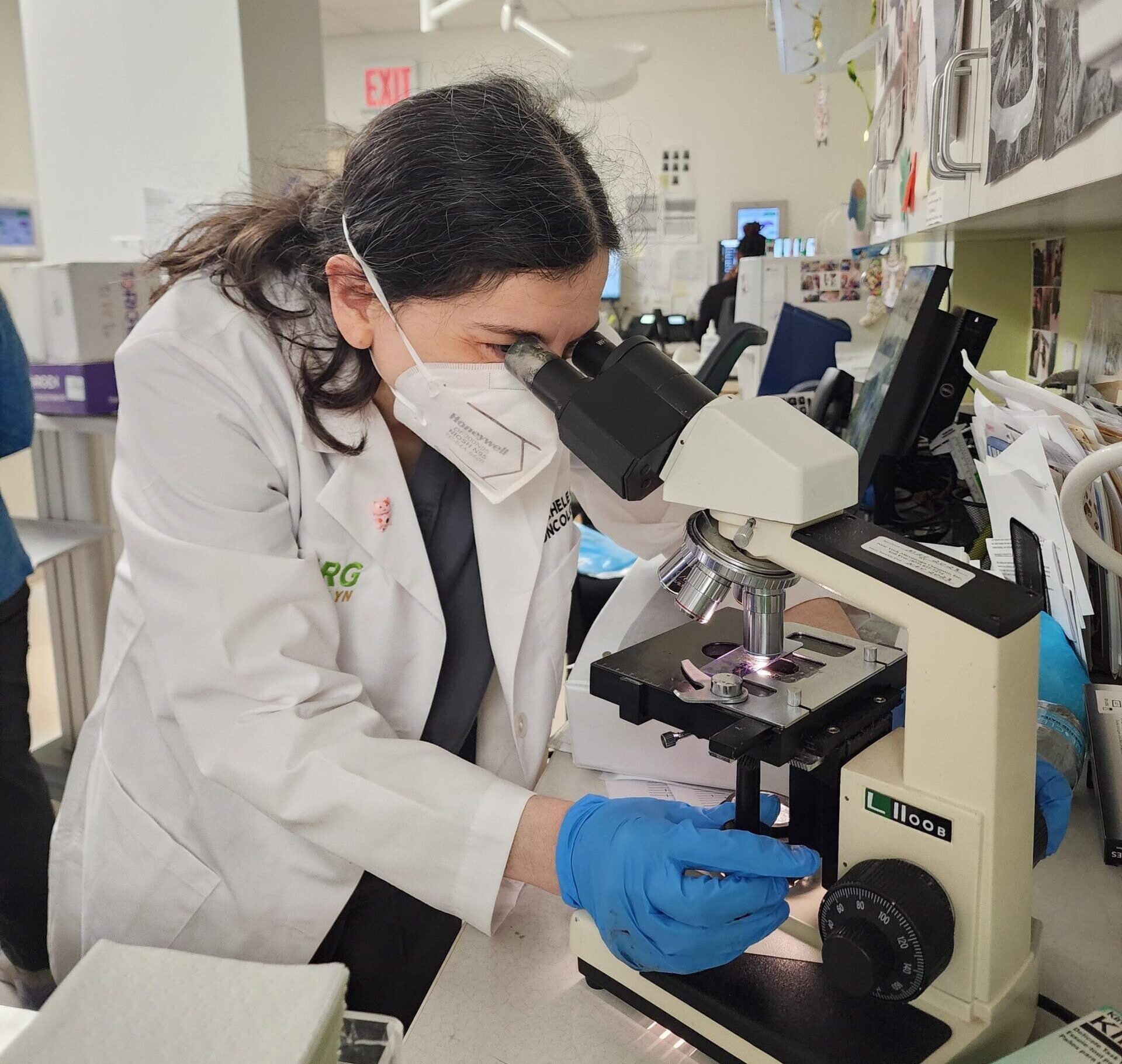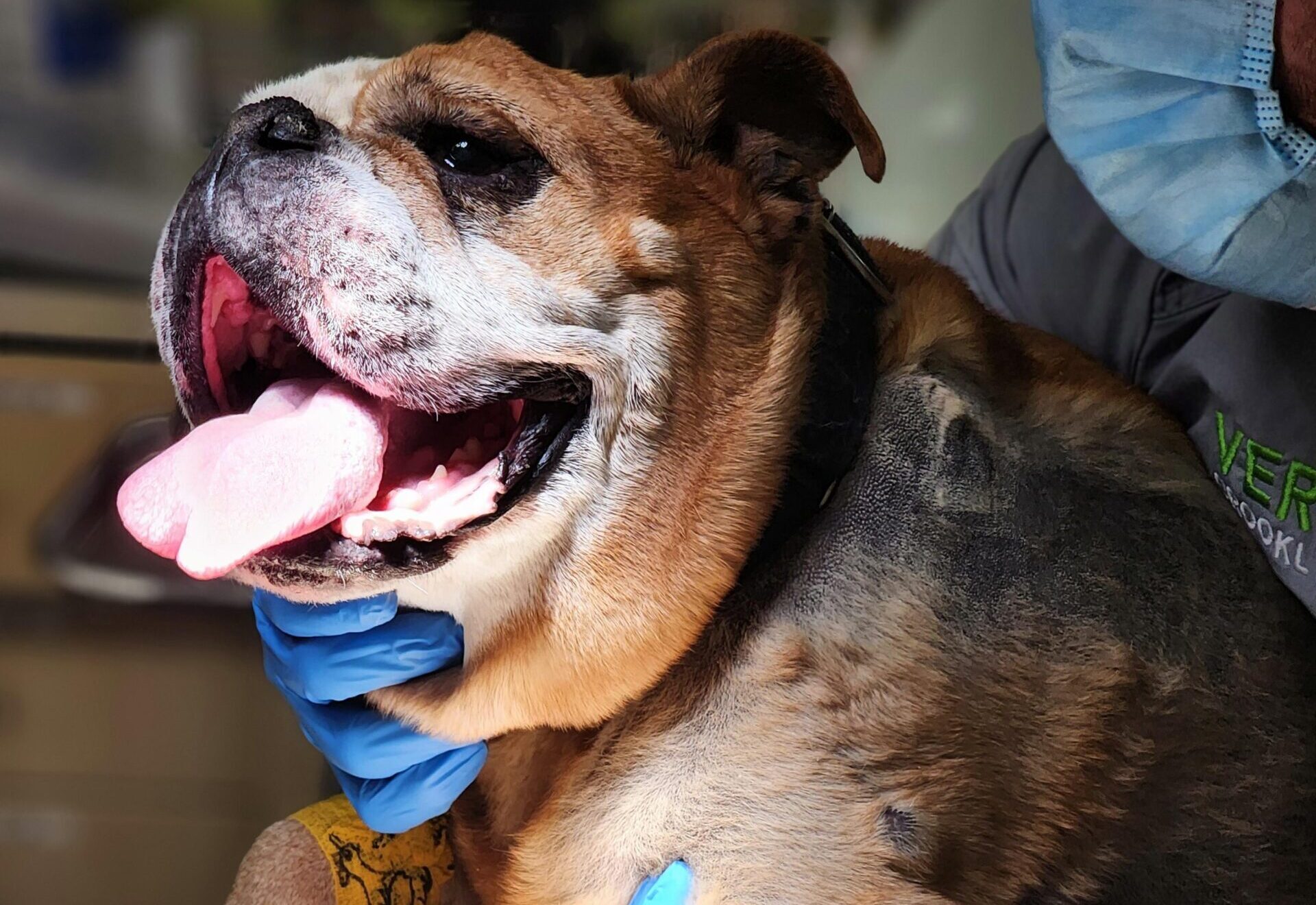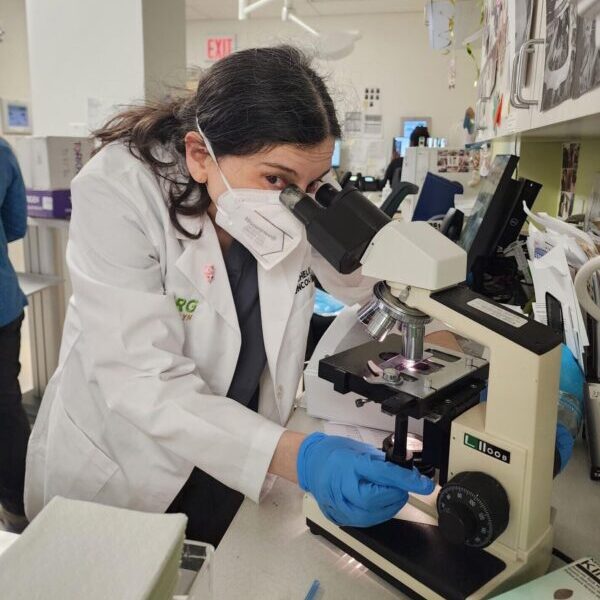Oncology
Scroll below to learn more about Oncology at VERG!
VERG Brooklyn Oncology
Cancer is, unfortunately, very common in pets. Approximately 45% of dogs over the age of 10 develop cancer, and approximately 35% of cats over the age of 10 develop cancer, far exceeding the incidence in humans. This means that almost an astounding one out of every two dogs and one out of three cats will develop cancer in their lifetime!
The diagnosis of cancer in your pet is undoubtedly devasting. But with advances in veterinary oncology, there is hope. With early detection and rapid action to start treatment, pets can experience extended survival with minimal side effects and excellent quality of life. The oncology team is here to provide your pet with the most innovative diagnostics and treatments available.


There are over 100 different types of cancers. Some of the more common cancers include lymphoma, mast cell tumors, hemangiosarcoma, bladder cancer, osteosarcomas, squamous cell carcinomas, anal gland carcinoma, melanoma, nasal tumors, soft tissue sarcomas, and brain and spinal tumors. In short, all cancers can be treated. Some cancers are more treatable than others, but there is hope for every patient.
Questions About Pet Oncology
What types of diagnostic tests can be performed?
What types of treatments are available?
Cancer treatment is a multimodal approach, including surgery, chemotherapy, radiation therapy, immunotherapy, targeted therapies, alternative therapies, nutrition, and palliative treatments. The treatment largely depends on the type of cancer and patient. Surgery and radiation are localized treatments for cancers that are isolated to one part of the body or organ. Chemotherapy is a systemic treatment, which means it treats the entire body. This is used for cancers that affect more than one location or organ or in conjunction with localized therapy to prevent/delay metastasis. Immunotherapy, like a vaccine, helps to stimulate the body to mount an immune response to the cancer. Targeted therapy is a newer treatment that targets the pathways involved in cancer cell growth. Supportive therapies can include alternative treatments, nutrition, and pain management.
What types of side effects can I expect?
The goal of cancer therapy in pets is to improve the quality of life. We would not want any patient, especially your pet, to suffer. Cancer treatment in pets is extraordinarily well tolerated, and they often enjoy coming to the hospital because of all the attention and treats they receive from the oncology team. Approximately 85% of pets on chemotherapy experience little to no side effects. A small percentage can experience mild gastrointestinal upset, which is mitigated with effective preventative medications.
What can I expect during a chemotherapy visit?
What types of cancer can be treated?
Can cancer be cured in pets?
Meet Dr. Michele Cohen & the Oncology Team
Dr. Cohen is board certified in both medical oncology and radiation oncology and has been treating pets with cancer in the tri-state area for over 20 years. She and her dedicated team of skilled oncology nurses are here to help you and your pet through this journey with compassion and expertise. Offering appointments in a timely fashion, with early morning, weekend, and drop-off appointments available, because we understand the urgency of the situation and your time constraints. Cancer won’t wait a month for an appointment. Why should your pet have to?





